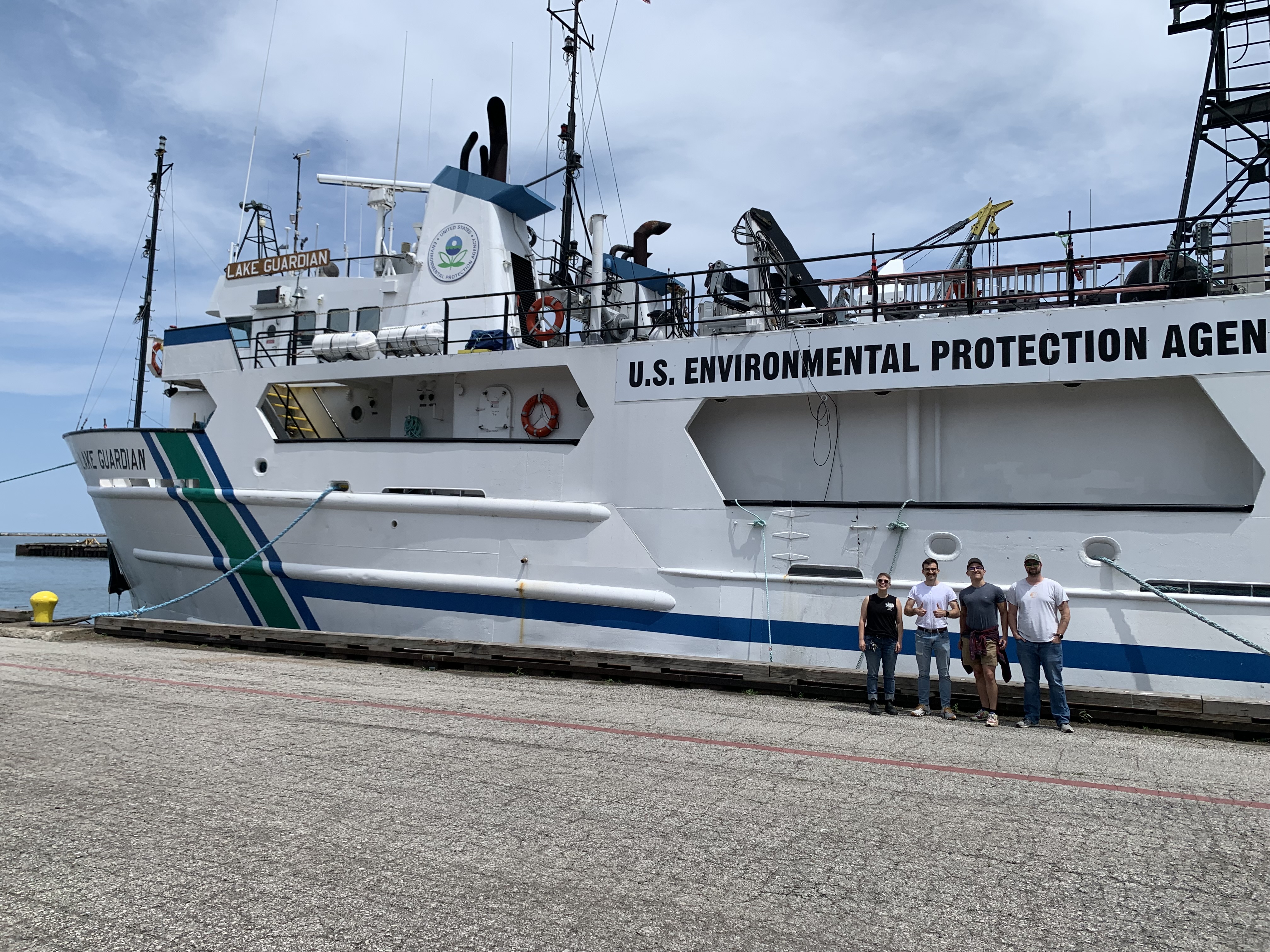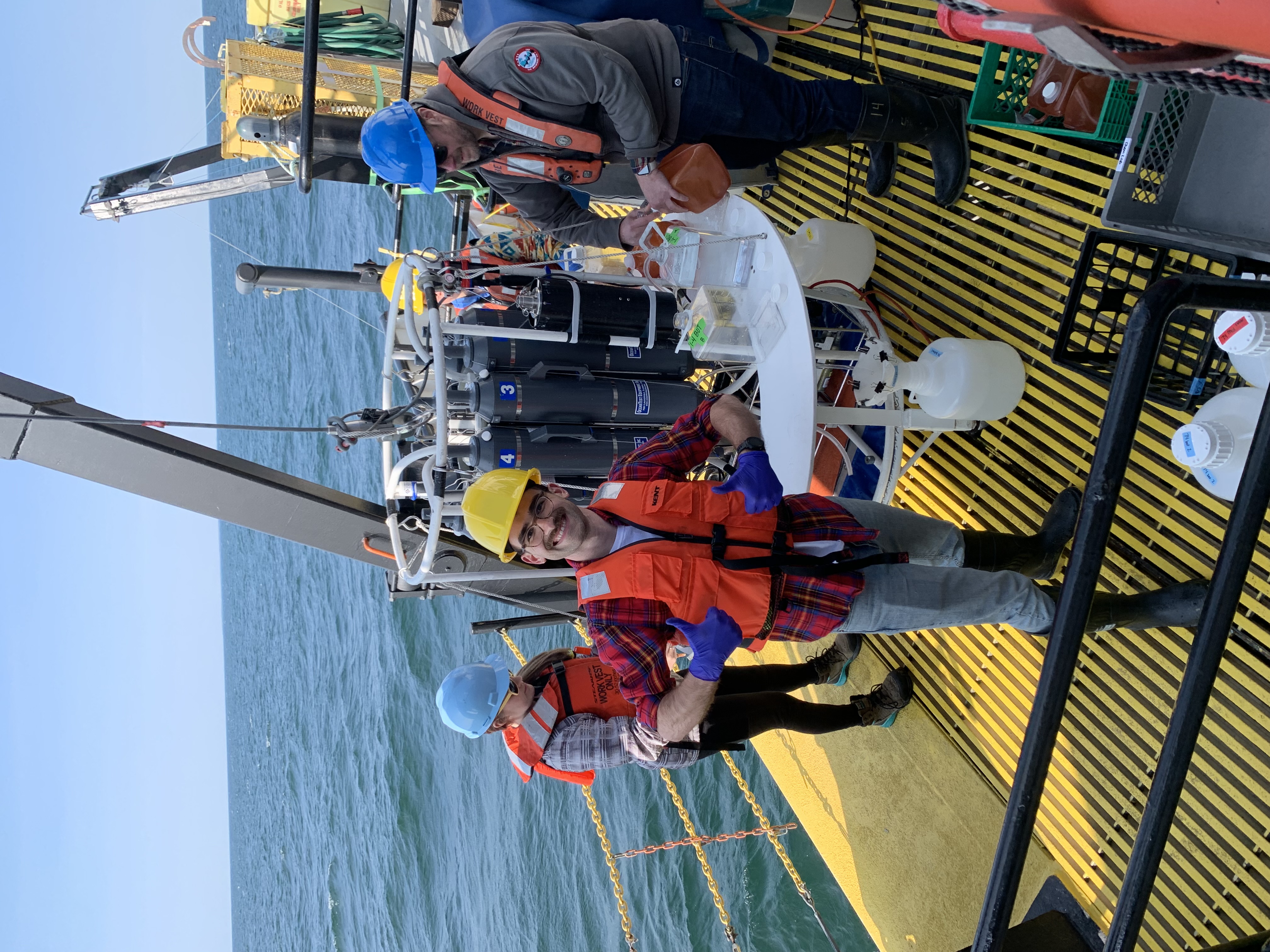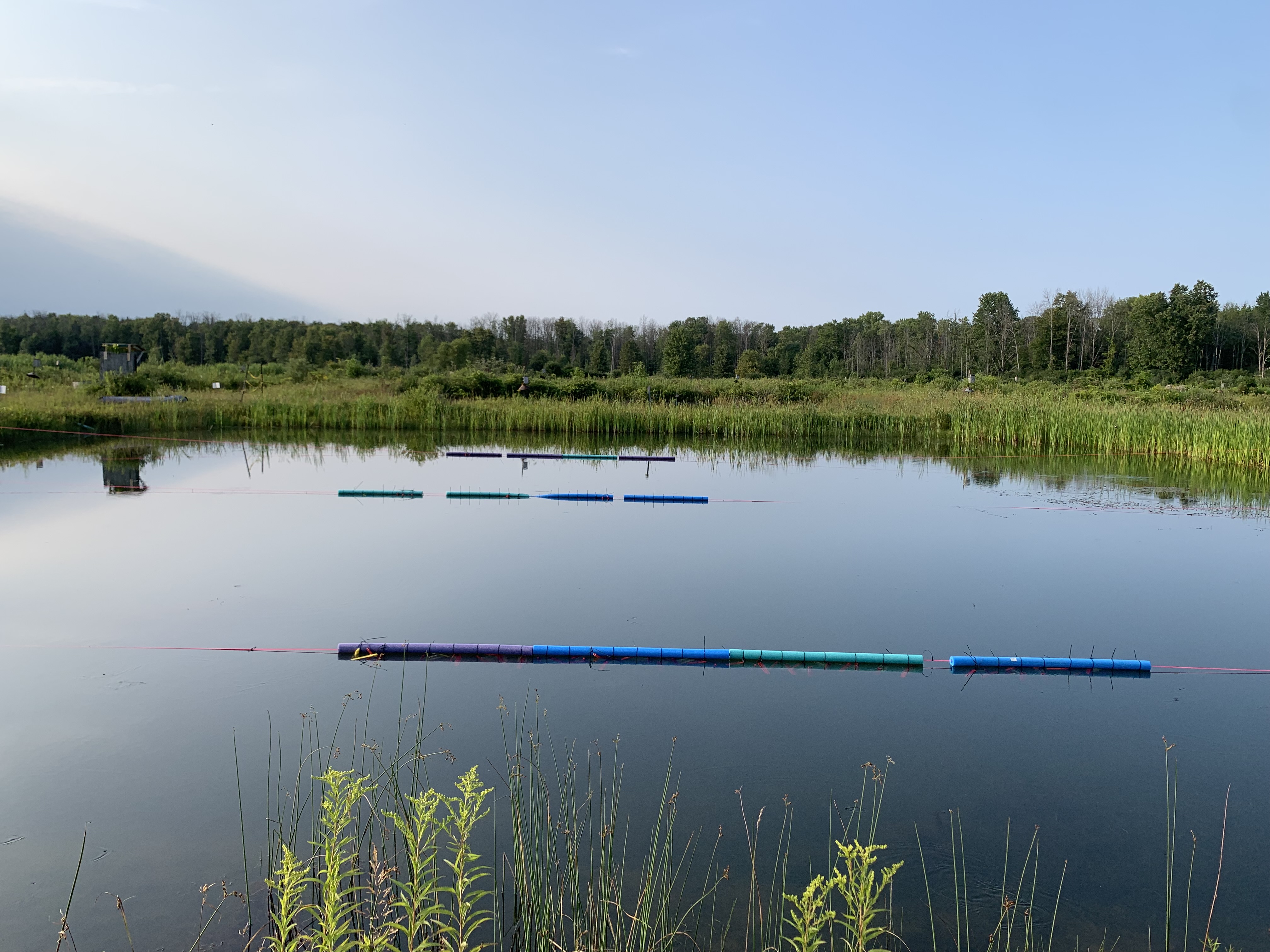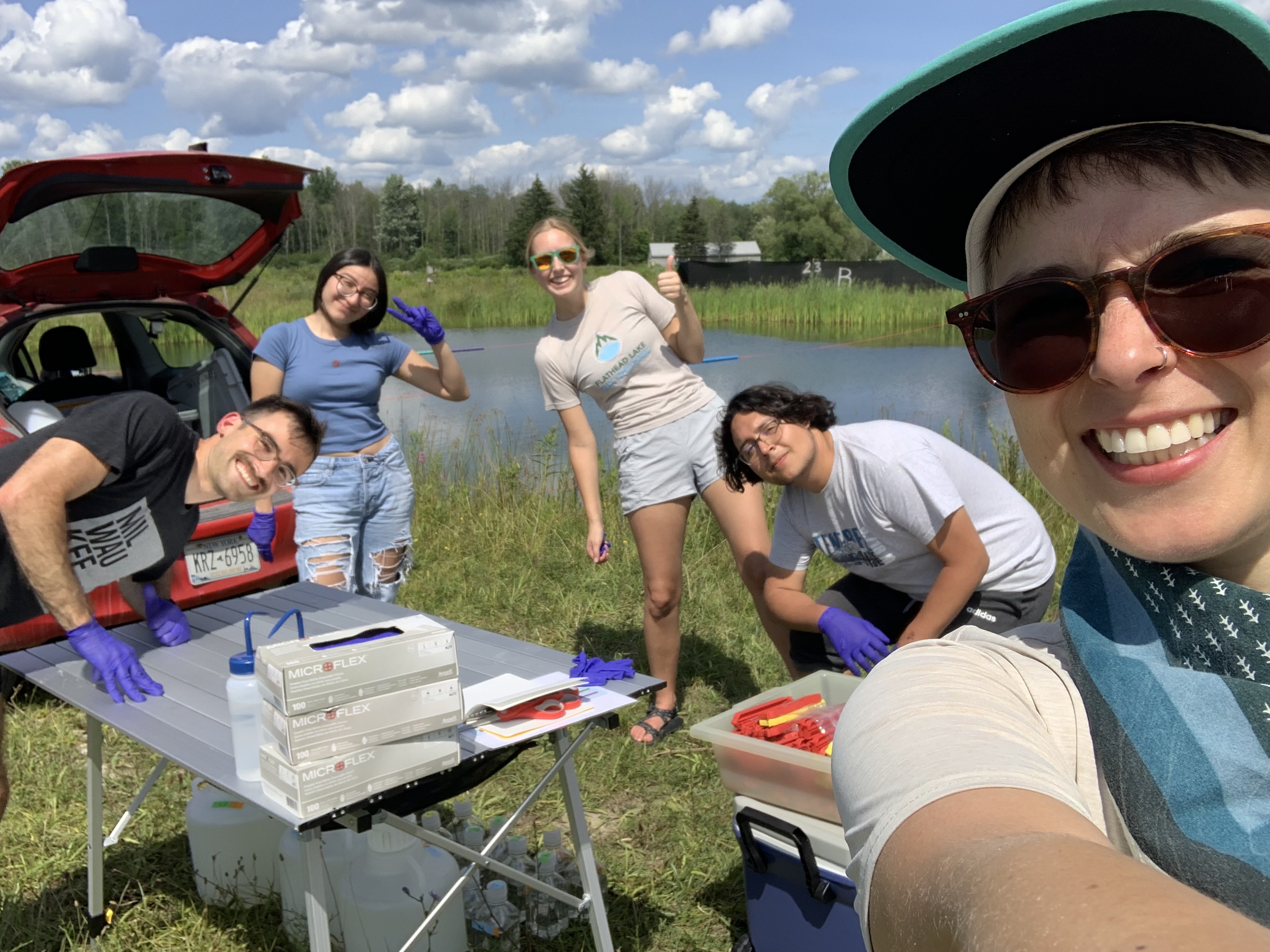Microbial Ecology & Evolution in Aquatic Ecosystems
Throughout the world aquatic ecosystems are warming, acidifying, decreasing in oxygen, and eutrophying; however, we have a very limited understanding about the evolutionary potential and adaptability of aquatic microbes to such environmental changes. Our lab investigates the general microbial ecology & evolution of these ecosystems. We also have a special interest in bacterial communities within particulate matter, which may be a major source of genetic innovation and resilience in aquatic microbial communities. These particulate matter microhabitats may serve as hotspots for microbial diversity & interactions, horizontal gene transfer, and genomic diversity.
To approach these topics, we use a combiation of field sampling, molecular lab methods, and bioinformatic workflows.
Cornell is an ideal place for experimental and field work within freshwater ecosystems because it is located in the Great Lakes watershed and within the Finger Lakes region. There are also wonderful resources nearby including the Cornell Experimental Ponds, the Cornell Biological Field Station at Shackelton Point on Oneida Lake, and the Little Moose Field Station in the Adirondacks! Marian is excited to develop projects across these ecosystems to tests questions in the fields of microbial ecology and evolution!
Great Lakes Microbial Community Assembly

We have paired up with the EPA to perform research aboard the R/V Lake Guardian as part of their Lower-Food Web Cooperative Monitoring and Science Initative. We are working on building spatially explicit maps of microbial communities across each of the Great Lakes in May and September. In 2023, we participated in two cruises on Lake Ontario and in 2024, we participated in three cruises on Lake Erie. Up next, Lake Michigan in 2025!

Floating Solar Impact on Microbial Community Dyanmics
We are working with a collaborative team to evaluate how floating solar impacts aquatic ecology, with a specific lens through the microbial communities!
Microbial Community Assembly within microhabitats

We love to run in situ experiments at the Cornell Experimental ponds to evaluate how microhabitats influence community assembly patterns in aquatic ecosystems.

